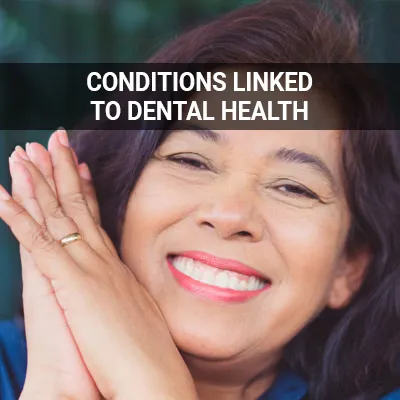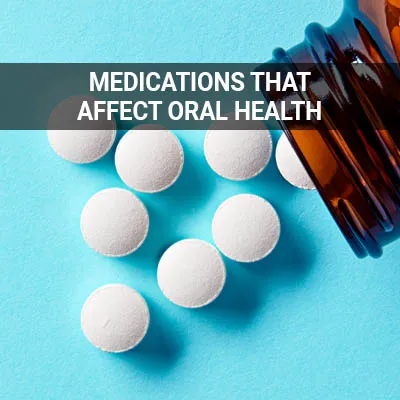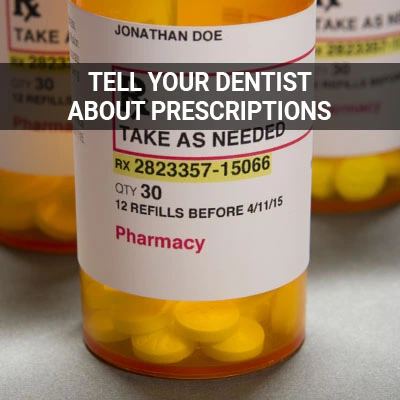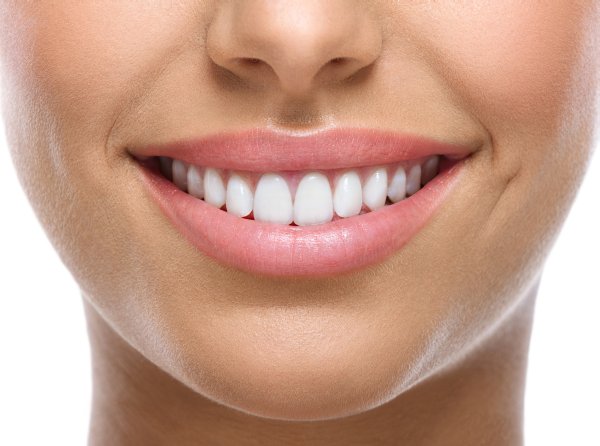Probiotics and Prebiotics in Dental Weston, FL
The general public has long known about the benefits of probiotics and prebiotics for gut and gastrointestinal health. Research is now showing promising results of pro and prebiotics in relation to oral health and its impact on patients' general health. Pro and prebiotics serve different functions but have shown significant health benefits to the oral cavity when taken simultaneously during dental treatment.
The prevention of bad bacteria is essential in promoting a healthy mouth. A balanced microbial environment in the oral cavity prevents disease and curbs decay while also enhancing the body's overall health. The mouth is essentially a gateway to the rest of the body and its organs; limiting the amount of bacteria that enter the body can greatly reduce many health conditions.
Probiotics and prebiotics are available at Artful Dentistry & Wellness in Weston and the surrounding area. Our staff can help you learn more about the procedure you are undergoing and answer any questions you may have. Call us at (954) 526-2266 to schedule a consultation appointment today.
Differences Between Probiotics and Prebiotics
The main difference between probiotics and prebiotics is one is alive and the other is not. Probiotics are live organisms that carry health benefits and are similar to naturally living organisms in the body. They are non-toxic and benefit the host organism by reproducing bacteria in the mouth and oral cavity that help the body stay healthy.
Prebiotics are dietary supplements that favor and increase the growth of good bacteria over bad bacteria. According to Oral DNA Labs, "They empower your existing good bacteria (or good bacteria introduced through probiotics) to survive and establish a balanced ration of good-to-bad bacteria using nutrients to influence the oral environment." The relationship between pro- and prebiotics is similar to a seed (probiotic) and fertilizer (prebiotic); one is necessary to charge the other.
“The main difference between probiotics and prebiotics is one is alive and the other is not.”
The Connection between Probiotics and Oral Health
In addition to their systemic benefits, probiotics may also be beneficial within the specific domain of oral health. The oral cavity is estimated to have several hundred species of bacteria, and manipulating the composition of those bacterial species by introducing pro-health bacterial colonies may produce positive outcomes. A recent commentary published in the Dentistry Journal reviews the research that has evaluated the connection between probiotics and oral health, and found that probiotics may have the following benefits:
- Probiotics may antagonize harmful bacteria
- Probiotics may modify the development of dental plaques and reduce cavity-forming plaques
- Probiotics may help control periodontal disease and mitigate gingivitis
- Probiotics may confer resistance to oral infections by enhancing the oral immune response
More research is necessary on how probiotics may work as preventions or therapies for oral disease, but the current understanding is promising.
“Probiotics may modify the development of dental plaques and reduce cavity-forming plaques.”
How to Increase Prebiotics in Diet
Prebiotics have active agents that stimulate the growth of probiotics in the oral cavity and gut. They are natural sugars and fibers that work with healthy bacteria and yeast to promote health. Medical News Today lists the most common foods that contain prebiotics as fruits, vegetables, legumes, cereal grains, nuts, and seeds. Various types of these foods can include:
- Fruits: bananas, custard apples, watermelon, grapefruit
- Vegetables: chicory, artichokes, garlic, onions, shallots, leeks, cabbage
- Legumes: chickpeas, lentils, red kidney beans, baked beans, soy beans
- Cereal grains: bran, barley, oats
- Nuts and seeds: almonds, pistachios, flaxseeds
“They are natural sugars and fibers that work with healthy bacteria and yeast to promote health.”
Check out what others are saying about our dental services on Yelp: Probiotics and Prebiotics in Dental in Weston, FL
Benefits of Probiotics
Probiotics have the ability to eliminate bad bacteria while increasing the growth of beneficial bacteria. A study in the Dentistry Journal found that "the nature and composition of any individual microbiome impacts the general health, being a major contributor to oral health." In turn, oral bacteria greatly contribute to general health and the functionality of various organ systems.
Healthline provides the major benefits of probiotics on oral health:
- They help prevent plaque
- Can help fight bad breath
- Can prevent oral cancers or reduce symptoms
- Manage symptoms of gingivitis
- Decrease inflammation of gum disease
Although these benefits are not guaranteed with all types of probiotics, beneficial factors increase with the use of them. Probiotics are also not harmful, and taking them only benefits the person as a heightened number of healthy bacteria leads to overall health.
“Probiotics have the ability to eliminate bad bacteria while increasing the growth of beneficial bacteria.”
Questions Answered on This Page
Q. What is the difference between probiotics and prebiotics?
Q. How can I increase prebiotics in my diet?
Q. What are the main benefits of probiotics?
Q. How do probiotics benefit oral health?
Q. Are there specific health conditions that may be improved with the use of prebiotics or probiotics?
People Also Ask
Q. How do oral bacteria affect the digestive system?
Q. How does oral health affect the gut and immune system?
Q. What can complete health dentistry do to promote my health?
Q. How is the mouth the gateway to the body?
Q. Why is preventative care important?
Q. What family members may need extra help with their oral hygiene?
How Can Probiotics and Prebiotics Benefit Specific Health Conditions?
Prebiotics and probiotics are thought to optimize body processes across the board, but they may be particularly beneficial for people with specific health conditions.
Examples of health conditions that may be positively impacted by prebiotics and probiotics include:
- Allergic Conditions: Prebiotics have been shown to decrease the risk of allergies, according to the Current Developments in Nutrition journal.
- Dental caries (Tooth Decay) and Gum Disease: According to the National Institutes of Health, a review of seven studies showed that probiotic use in children was associated with fewer cavities, however more research is needed due to study limitations. A separate review of twelve studies found that probiotics might also be helpful in gum disease because they reduce the population of harmful bacteria within the mouth.
- Inflammatory Bowel Disease: Research has shown that people who suffer from the inflammatory bowel disease known as Ulcerative Colitis might be more likely to go into remission and stay in remission when they add prebiotics and probiotics to their treatment plan.
These represent three of the many health conditions that may be improved by supplemental prebiotics and probiotics, and ongoing research may reveal even more.
“Some studies have shown that people who suffer from the inflammatory bowel disease known as Ulcerative Colitis might be more likely to go into remission and stay in remission when they add prebiotics and probiotics to their treatment plan.”
Frequently Asked Questions About Probiotics and Prebiotics
Q. What is the recommended dose when taking probiotics?
A. The recommended dose of any probiotic should be indicated on the packaging label. Each body is different and has a certain amount of live and active bacteria at any given time. Different probiotics can be effective at different levels. Thus, a product containing a higher number of live probiotics may not be better than one with fewer.
Q. What are the names of common prebiotics?
A. There are three categories of prebiotics that scientists have identified as supportive of overall health. These are known as fructooligosaccharides, inulin, and galactooligosaccharides. If you are looking for a prebiotic supplement, make sure that you check the ingredients label to see if these are included.
Q. Are probiotics bacteria?
A. Yes. Although the term "bacteria" has a rather negative connotation, many bacteria are helpful and supportive of your health. The two most common probiotic bacteria are the Lactobacillus and Bifidobacterium groups. If you check the ingredient label of your yogurt carton, you will likely see one of these named bacteria.
Q. How does the oral cavity compare to the rest of the body in terms of its microbial population?
A. Research shows that your mouth has the greatest microbial diversity of any other area in your body, including your gastrointestinal tract, urogenital tract, and skin. One of the reasons for this is that your mouth connects to many other places where microbes live, such as your sinuses, your skin (do you eat with your fingers?), and your gastrointestinal tract. There are an estimated 800 different species of microbes living in your mouth.
Q. How do microbes negatively affect dental health?
A. One of the most notorious ways in which microbes affect the health of your teeth is in the existence of plaques. A dental plaque is a structure known as a "biofilm," which is a hardy organ-like collection of bacteria that grows on the surface of your teeth. Biofilms that persist-- unchecked by brushing, flossing, mouthwash, and regular dental cleanings--can degrade your teeth and cause dental caries or cavities.
Q. What is the best way to maintain a healthy oral microbiome?
A. Practicing good daily oral hygiene is something you can do every day to maintain a healthy oral microbiome. You should brush at least twice a day and floss at least once a day. It is also a good idea to use an ADA-approved mouthwash and use interdental brushes or a water flosser to clean around your orthodontic or dental work.
Dental Terminology
Consult With Us
If you are looking for more information pertaining to complete health dentistry or the use of prebiotics and probiotics for oral health, call us at 954-526-2266 to speak to Artful Dentistry & Wellness.
Helpful Related Links
- American Dental Association (ADA). Glossary of Dental Clinical Terms. 2025
About our business, license, and website security
- Artful Dentistry & Wellness was established in 2000.
- We accept the following payment methods: American Express, Cash, Check, Discover, MasterCard, and Visa
- We serve patients from the following counties: Broward County
- We serve patients from the following cities: Weston, Pembroke Pines, Southwest Ranches, Cooper City, Davie, Sunrise, and Plantation
- FL (License #DN 20879). View License Information and Specifics
- National Provider Identifier Database (1083016257). View NPI Registry Information
- Healthgrades. View Background Information and Reviews
- Norton Safe Web. View Details
- Trend Micro Site Safety Center. View Details
Back to top of Probiotics and Prebiotics in Dental









